


As I mentioned last time in my colorful tirade against the Electronic Entertainment Expo, there are a few things about E3 I don't like. A few tens of thousands of things I don't like, in point of fact. But my underlying hatred for my fellow man notwithstanding, the behavior of other show attendees, while embarrassing, is quite literally nothing compared to the systems of conduct enforced by showrunners and publishers alike.
Namely: that despite Los Angeles famously being a city where you cannot go ten feet without running into a fusion gourmet taco stand, everyone at E3 seems to be running on empty.
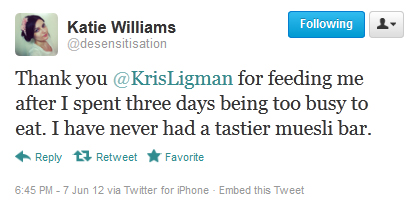
The first time a journalist friend told me she hadn't eaten in two days, I thought she was being colorful. The second time a journalist friend said it (that being Katie Williams, above), I forced a granola bar into her hand and watched to make sure she ate it. The third, fourth, and fifth times journalist friends reported going on little to no food for days at a stretch, I started drawing up plans for an Emergency Rations for Game Journos charity.
It is inconceivable to me, even taking into account jet lag, disorientation, excitement and nonstop videos of gratuitous throat stabbings, that an entire fleet of journalists descending upon an industry convention where food stalls are literally around every corner cannot take the time to eat. For days on end, even! This is not a matter of everyone in games journalism being dangerously anorexic (and if so, I'm feeling rather left out, as the resident fat chick); this is a matter of being so horrendously taxed for time that eating and, in some cases, sleeping just isn't the schedule. This has to stop.
And it's not, as I may have indicated before, a matter of what journalists are doing to themselves. No, this is about what exhibitors, showrunners and publishers are doing to them, and it's rather worrying.
For the lay reader, allow me to explain: the E3 show floor composes only a small percentage of the actual event/ritualistic orgy to the gods of capitalism that is the Electronic Entertainment Expo. Much of the really good stuff is sequestered away in screening rooms, VIP sections, and off-site exhibition halls, held by appointment only and generally all arranged in advance of the actual expo. I count myself fairly fortunate, as a freelancer whose main role is located more in the curation of game writing than the shilling out of 'exclusive' press releases, that this dark netherworld of E3 is essentially unknown to me. But the same cannot be said of many of my peers for other publications, who spent their visit to Los Angeles scurrying from appointment to appointment, daring only to sit down only when ready to pass out. For as overwhelmingly huge as E3 may appear in all its two-page spreads and wall-to-wall televised coverage, it's even larger for the journalists down on the floor trying to actually cover it.

This, on its own merits, isn't doing anything wrong. A frenzied trade conference is (ostensibly) the sign of a healthy industry. Where this crap goes wrong is when you start taxing live human bodies beyond sensible limits trying to distill it all down for easy consumption. Because, again, this is not a fan convention; it's a trade show. These are people's (grossly underpaid) jobs. And we're expecting them to keep chugging along at a breakneck pace for days at a stretch on, what, enthusiasm?
Again, this is not intended to call out a particular publisher or exhibitor, because this is a problem endemic to E3. None of the journalists I spoke with, including Williams, blamed the lack of nutrition on anyone but themselves, and by mentioning them here I don't mean to suggest I'm speaking on their behalf in criticizing their employers, or any such thing. What I do mean to show is just how widespread the 'starving journo' of E3 is. This is not an isolated incident of a few writers not finding time for lunch; this is a problem which affects writers everywhere from small two-bit blogs to well-funded, major news sites. We shouldn't tolerate this.
If E3 is so vast and unmanageable that even a team of journalists, sharing the load across a dozen colleagues with a major publisher and its resources behind them, can't find the time to eat or get more than a couple hours of sleep, that means the situation is becoming untenable. A fan convention with more to do than you can ever see is normal; an industry conference which does the same has its priorities skewed.
Let's reiterate this, once more with feeling: E3 is a trade show. It is not an event for fans. Despite all current evidence to the contrary, largely in the conduct displayed on the show floor, E3 is not for gamers-- at least not in the lay sense of the word. It is for the gamers and non-gamers who design and write about games for lay gamers. It is not Comic Con. It is not Penny Arcade Expo. It should not run off your enthusiasm. You can reasonably ask a fan to exhaust him- or herself for the object of their fandom; that's what fandom does to people, and if the enthusiasm is not there, the fan simply opts not to volunteer their time and energy. You cannot reasonably ask the same level of commitment of a professional there on assignment, who must comply because their job's at stake. This is where the whole 'enthusiast press' thing goes horribly, horribly wrong.
An industry show should not be so large that a full compliment of wired-in journalists working around the clock can't feel they're doing a sufficient enough job to warrant a stretch and a breakfast bar. Please think hard about this, editors. Not only are these conditions unhealthy, they're increasingly unnecessary at an event which treats journalists as dictation machines and canned audience applause tracks. What are your writers getting from these appointments that you can't pull up five minutes later from the publisher's website? Or was available three days previously from a leaked Youtube upload?
If you can pay to fly enough people to Los Angeles every June to repeat the words of publicists for three to five days, send an extra person down to make sure they all eat in that time. This should not be optional. We gamers aren't known for our healthy lifestyles to begin with, and if we're racing around trying to grab freebies and play in bounce houses with half-naked girls, we're going to need our strength up.
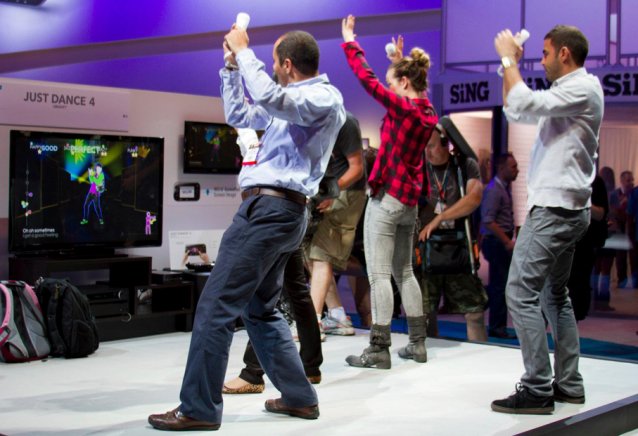
A more economical option: don't send your people to E3 at all, and buy them a really nice dinner instead. I guarantee that you will get roughly the same amount of meaningful event coverage, and fewer hospital visits on their expense reports. Please take this under consideration.
And as for exhibitors and E3's showrunners: I'm sure I can't persuade you. You tried to relax the event in 2007 and all it did was make fans whine, which is what tends to happen with fans all the time anyway. (You know what else makes kids whine? Bed times, but most parents can agree those are rather helpful for the raising of a healthy child and/or global capitalist industry. But I digress.)
I know that the market imperative is to keep doing a thing until it's so broken everything stops running. That's why I direct most of this plea toward editors and publishers rather than the game industry itself: to exhibitors, as we've already seen, journalists are expendable little stage props whose presence ranges from 'utilitarian' to 'vague nuisance.' Exhibitors and publicity agencies can't be expected to give a fuck about how closely back to back their VIP screenings and Q&A sessions are. No, that responsibility needs to fall on the people managing the journalists. Because as much as it might fill me with a warm fuzzy feeling to feed E3's many hungry next year, I really can't bring enough granola bars for everyone.
You may have noticed the sort of upward trend with this series, in which I started out making enemies with every one who's ever attended E3 and then, here, moved on to the people who sent them there. Next week we reach the boss level: the gaming industry itself, and the toxic way it corrupts everything at E3 it touches.
Photography credit: Jennifer Roy, 2012.
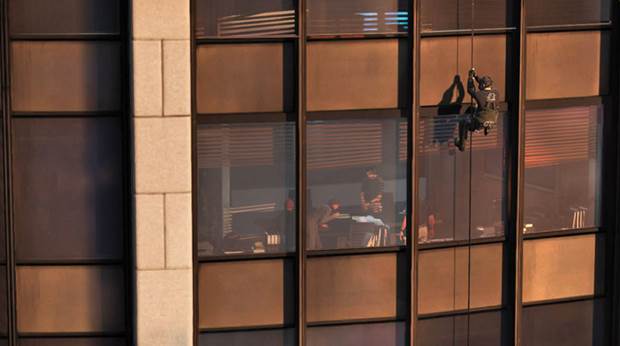
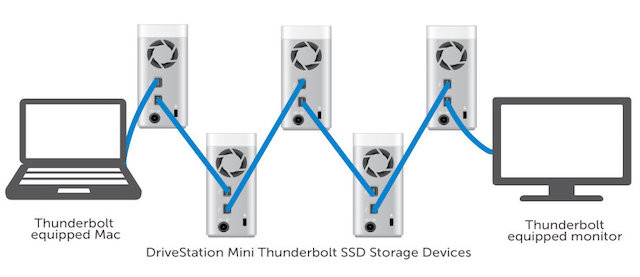
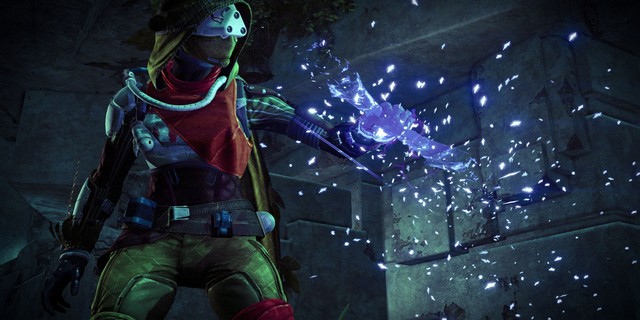

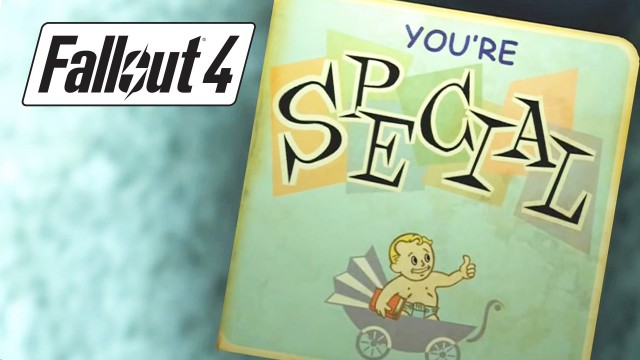 Fallout 4 Ultimate Tips and Tricks Guide: How to Earn Easy XP, Perks, and Crafting
Fallout 4 Ultimate Tips and Tricks Guide: How to Earn Easy XP, Perks, and Crafting Pokemon X & Y Guide: How To Catch The Legendaries
Pokemon X & Y Guide: How To Catch The Legendaries Tomb Raider Review: So Close to Greatness
Tomb Raider Review: So Close to Greatness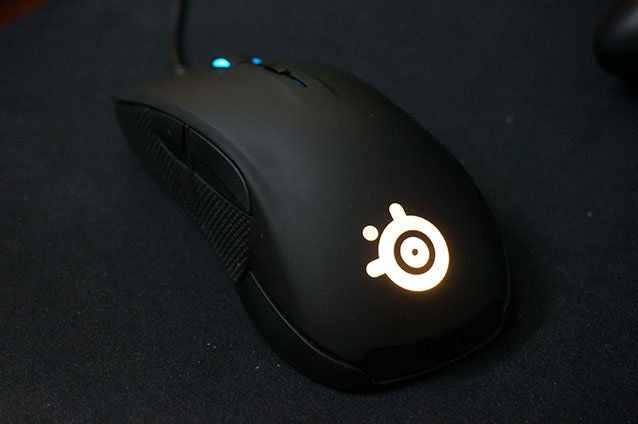 SteelSeries Rival Review
SteelSeries Rival Review No Smartphone, No Problem: 7 Great Mobile Games To Play In Your Browser
No Smartphone, No Problem: 7 Great Mobile Games To Play In Your Browser